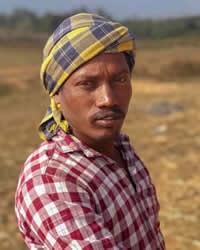The Telugu of Fiji have ancestral origins in Andhra Pradesh and neighboring states of South India. The Telugu who migrated to Fiji were mostly farmers from the lower caste (a pattern of social classes in Hinduism). India and Fiji were both parts of the British Empire. The British needed cheap labor to work on Fijian plantations, so in the 1870s they recruited people from all over India, including Andhra Pradesh. They came as indentured servants. Their living and working conditions were so poor that the scheme was abolished. Eventually, more arrived in the early 1900s as free workers. They served the needs of the British Empire during both world wars and after. They became more populous than native Fijians for a couple of years. Later, the best and brightest of the Telugus began to leave Fiji for better opportunities elsewhere.
Telugus in Fiji are blended in with all other ethnic groups from South Asia. Some have tried to describe them as “Indo-Fijian,” but that term is controversial. Many Telugus are professionals and have middle-level occupations in commerce and government service. They have made their mark in Fiji not only in the business sector but also in professional athletics, acting and politics.
The Tai Do are animistic. In traditional religion, they must appease spirits in an attempt to gain blessings and avoid catastrophes, which the spirits can bring upon them.
Their most important need is to place their faith in Jesus Christ, alone.
An informant from Borikhamxai believes there are a small number of Tai Do believers in Laos. These are the first-fruits of what will hopefully be a much larger harvest of Tai D
Pray for the Lord to thrust out loving and committed workers to Telegu speakers in Fiji.
Pray for Telegu-speaking disciples to make more disciples and plant churches.
Pray for spiritual hunger for Telugu-speaking people in Fiji.
Scripture Prayers for the South Asian, Telugu-speaking in Fiji.
https://en.wikipedia.org/wiki/Indo-Fijians
| Profile Source: Joshua Project |












